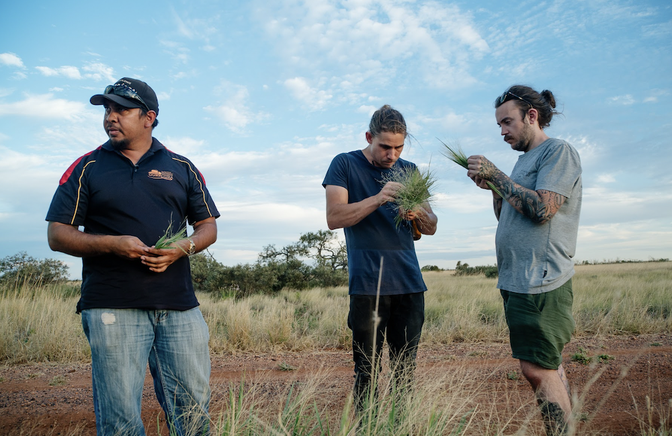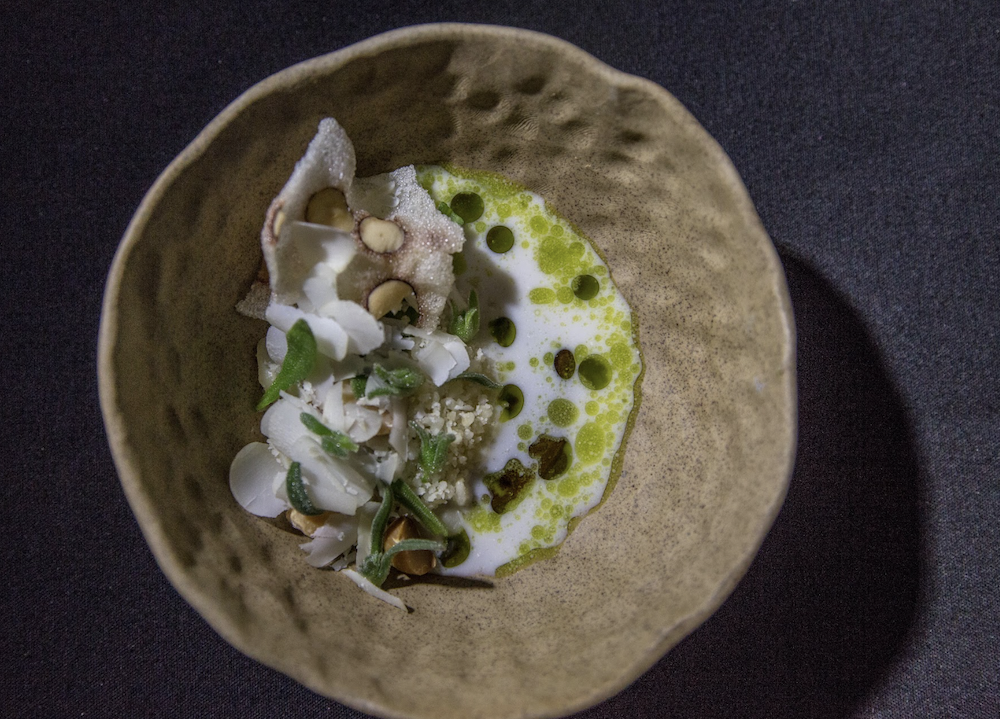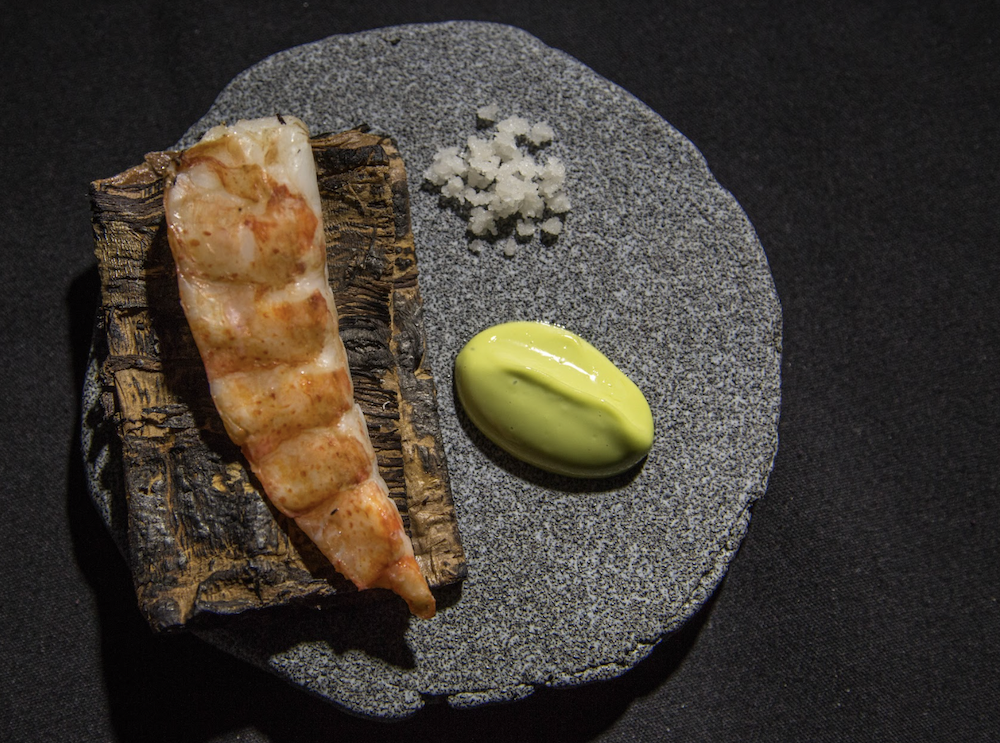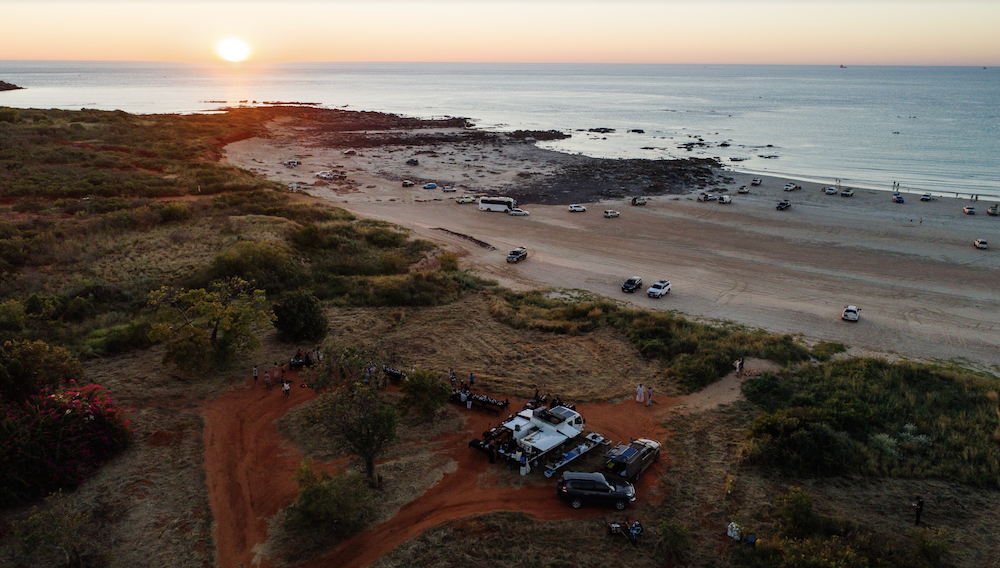Paul Iskov didn’t want to be a chef, he just wanted to go surfing. Now, in partnership with WA Gov, we discover how Iskov is bringing native ingredients to a larger audience with pop-up restaurant Fervor.

Paul Iskov’s approach to food is uniquely Western Australian. With his itinerant restaurant Fervor, he creates fine-dining-style degustation experiences built entirely on WA’s indigenous produce.
“We’re using kangaroo, emu and honey ants, quandong and kulyu, trying to stay away from carrots and tomatoes and beef and chicken,” Iskov says. “That was the initial idea, to focus on native Australian ingredients and really showcase the best of what Western Australia has.”
Fervor pops up anywhere from Albany on the state’s southern tip to the Kimberley up north. Combining a travelling restaurant with foraged native ingredients means that every menu is different, depending on where you’re eating.
“We just did a dinner in Margaret River and this weekend we’re down on the south coast in Denmark, so we’re using a lot of kangaroo and emu and marron,” Iskov says. “It’s so different to the Kimberley where they have boab and pearl meat and native lemongrass. When we go to a different region we really get to play with different ingredients and the menus change in each location.”

Iskov was a latecomer to cooking, starting aged 19 at Albany restaurant Dylans in 2002.
“I got into an apprenticeship down that way so I could surf during the day and cook at night-time,” Iskov says. “I could barely cook noodles and rice at home, but I just liked the hours.”
He progressed to working under chef Hadleigh Troy at Perth fine diner Amuse in 2007, before heading off around the world in 2012. It was while staging at celebrated restaurants such as Noma in Copenhagen and Dom in São Paulo that Iskov’s passion for native ingredients evolved into the idea for Fervor.
“I was at Dom and talking to [chef and owner] Alex Atala about a lot of these unique ingredients that they were using from the Amazon and how he approached it,” Iskov says. “He said, ‘Look, you really need to take your time, you need to be respectful and you need to work with the traditional custodians and Indigenous People."

In 2013, Iskov held the first official Fervor dinner in Margaret River, taking Atala’s advice to heart.
“It was really important to connect with the traditional owners and spend time on Country and get the right permissions and spend time listening and learning,” says Iskov. “As we did pop-ups in different regions of Western Australia, we really learnt more about different languages, different Country that we were standing on, and the different stories that connected the plants, the languages, the landscape to where we were.”
Across 10-plus courses, Fervor menus include native ingredients such as bloodroot, bush banana, desert lime and waterlily. Depending on where you dine, you might find a simple preparation of lerp (a sweet ant secretion) or a fine-dining-style set custard made from marron shell stock and bloodroot oil. Sourcing the ingredients has been a journey to every corner of WA, with plenty of time spent on Country, wild harvesting with locals, sourcing from Indigenous-owned businesses and forming lasting relationships.
“Very early on, Aunty Dale Tilbrook, who’s based in the Swan Valley, was a big mentor and a great friend of ours who really helped us with basically anything – I could call her and ask questions about ingredients,” Iskov says. “Before going to the Pilbara or Kimberley I could ask her the best people to get in contact with.”
It’s this connection with the land and its people that keeps the man affectionately known as “Yoda” rooted to Western Australia. The unbeatable hospitality industry culture and killer lifestyle doesn’t hurt, either.
“The diversity of WA is absolutely incredible,” Iskov says. “The landscape, the ingredients, the people, the culture – it’s all really unique. And one thing that we love about WA is being able to travel, getting out and camping. We spend a lot of time on the coast four-wheel driving, surfing, fishing, eating, so we feel really grateful for being able to do that.”
This article is produced by Scout Jobs in partnership with WA Gov.
Photography: group shot and scenery by Todd Delfs, food shots by Mick Sippe.




